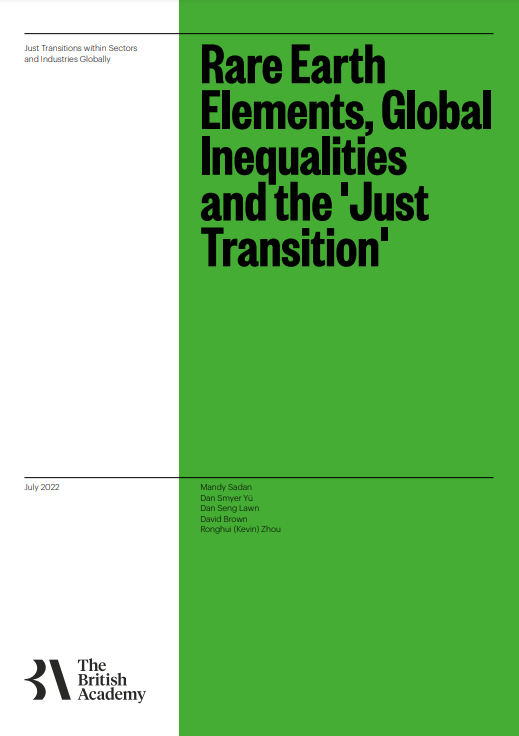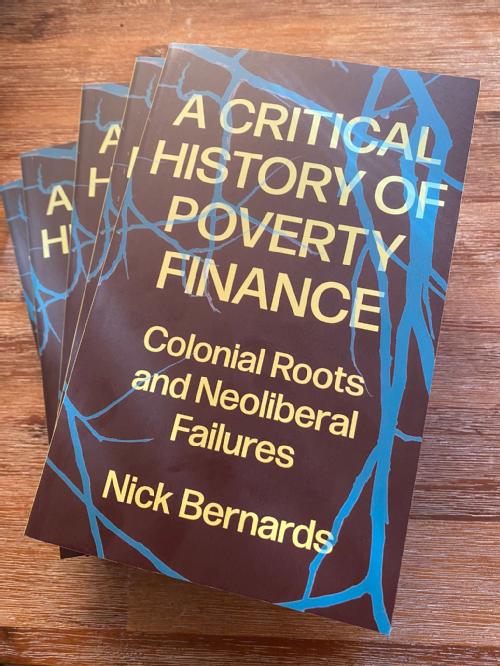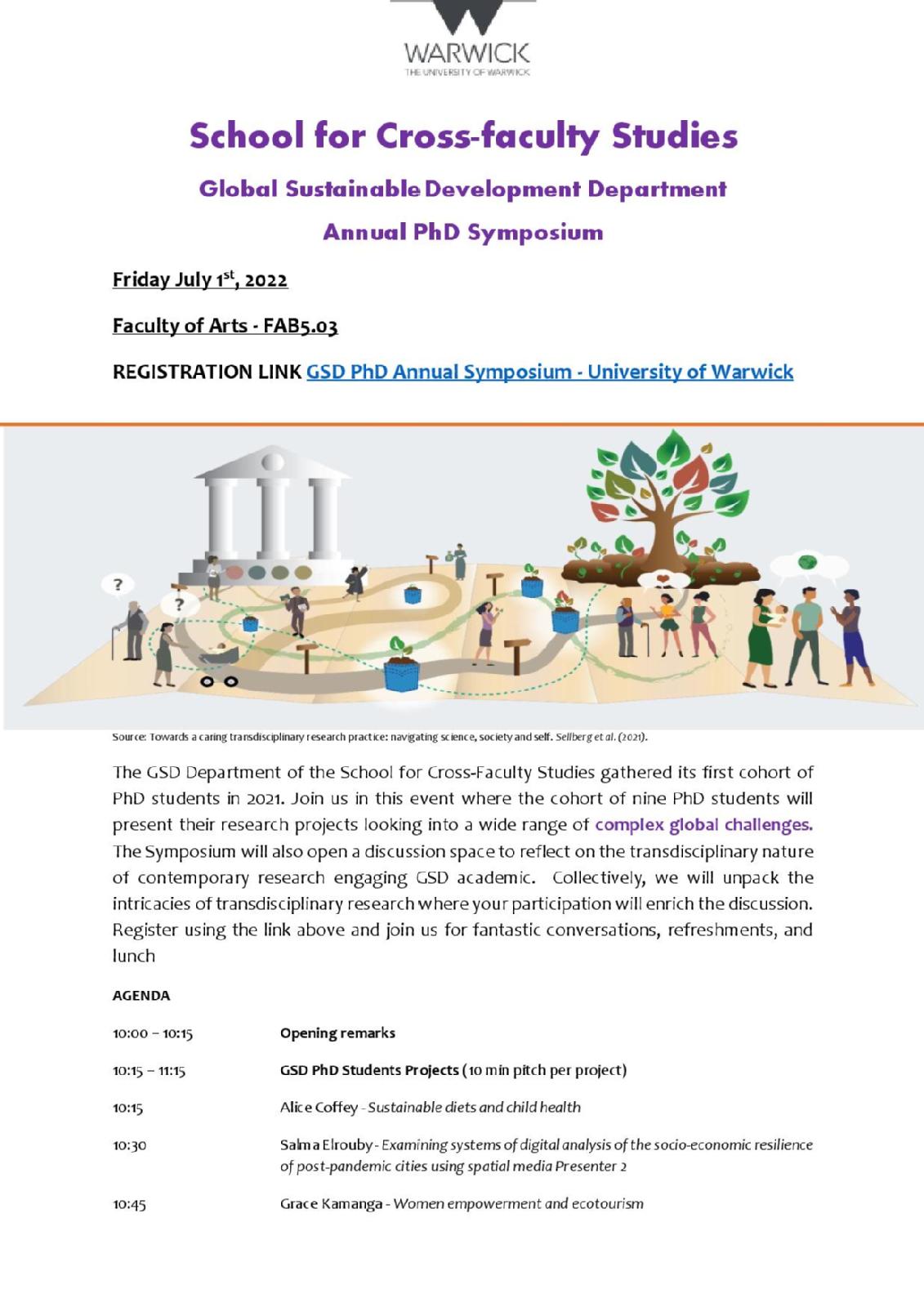Global Sustainable Development News
Teaching and Tutoring Excellence Awards: School for Cross-faculty Studies Success!
We are extremely proud of Dr Gioia Panzarella (Global Sustainable Development) and Dr Bryan Brazeau (Liberal Arts) for winning the 2022 Warwick Awards for Personal Tutoring Excellence (WAPTE)! The WAPTE Team received more nominations than ever before this year from both students and staff, so it is a real testament to their commitments to personal tutoring to be acknowledged at this level.
New summary report: Rare Earth Elements, Global Inequalities and the 'Just Transition'
A new summary report details preliminary findings from the project ‘Rare Earths in the Just Transition: Connecting Global Inequalities in REEs Commodity Chains’, which was funded by the British Academy’s Just Transitions within Sectors and Industries Globally scheme. The project is led by Professor Mandy Sadan (Global Sustainable Development).
New publication: 'A Critical History of Poverty Finance' by Dr Nick Bernards
A new book by Dr Nick Bernards, Associate Professor in GSD, A Critical History of Poverty Finance, has recently been published by Pluto Press. The book looks at the history of financial 'solutions' to global poverty, tracing out links between colonial-era practices and contemporary fintech fads. It shows how past and present efforts to extend access to formal financial services have reinforced and exacerbated embedded patterns of uneven development.
Research funding success for School for Cross-faculty Studies students
Congratulations to our students for securing funding for research projects over the summer!
The Undergraduate Research Support Scheme (URSS) enables undergraduate students to carry out an interdisciplinary summer research public engagement project. The scheme is open to any undergraduate student at Warwick and research can be completed in the UK or abroad.
This year, five students from the Global Sustainable Development (GSD) Department and one student from the Liberal Arts Department have successfully secured a URSS bursary. Their work will be recognised at the URSS Showcase 2022 on Wednesday 16 November between 1-4 pm in the Panorama room in the Rootes Building - all are welcome to attend!
GSD Student Presents Research at World PhD Students Sustainability Summit 2022
The World PhD Students Sustainability Summit 2022 was organised by the European School of Sustainability Science and Research, the Inter-University Sustainable Development Research Programme, and the European Alliance for Sustainability Research Rationale. One of our PhD students, Grace Kamanga, presented her research at the summit. Find out about Grace's experience of the summit and the research she presented.
Join us for our first annual GSD PhD Symposium!
The GSD Department is pleased to be hosting its first annual PhD Symposium on Friday 1 July 2022! This event will be taking place in the new Faculty of Arts Building, FAB5.03.
The Symposium will provide an opportunity for our first cohort of PhD students to showcase their research. The Symposium will also open discussions around this year’s theme of transdisciplinary research.
- Further details and a programme for the day can be found here.
- The Symposium is a free one-day event. Staff and students from across the University are very welcome to attend.
- Please complete our registration form to confirm your attendance.
Prof. Stéphanie Panichelli-Batalla delivers keynote at Midlands4Cities workshop
Earlier this year, Professor Stéphanie Panichelli-Batalla, Head of the School for Cross-faculty Studies, delivered a keynote on her research for a Midlands4Cities (M4C) workshop. The workshop was aimed at PhD students interested in oral history.
Professor Chris Dolan joins the GSD Department!
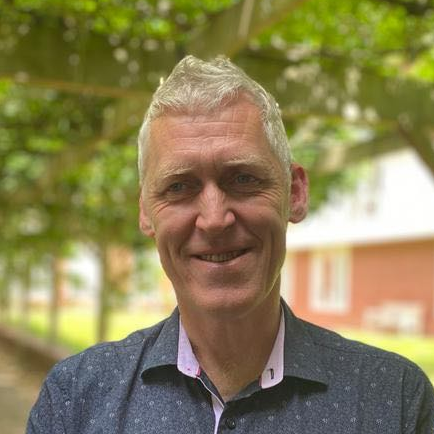
We are delighted to have recently welcomed Chris Dolan to the School for Cross-faculty Studies as a Professor in Global Sustainable Development.
Prior to joining Warwick, Chris’ career was largely spent in Sub-Saharan Africa, primarily in South Africa, Mozambique, the Democratic Republic of Congo and Uganda. From 2006-2022 Chris was Director of the Refugee Law Project in Uganda from 2006-2022, a position in which he developed work with refugees and internally displaced persons (IDPs) around five thematic areas: Access to Justice; Gender and Sexuality; Mental Health and Psychosocial Wellbeing; Conflict, Transitional Justice and Governance; and the use of Media for Social Change.
GSD funding success: Getting creative with sustainability
Image credit: Alan Paxton
Congratulations to Dr Jonathan Clarke and Dr Alastair Smith for their successful applications to the ‘Getting Creative with Sustainability’ funding call!
The 'Getting Creative with Sustainability' funding aims to create the opportunity for local artists and creatives to work with Warwick researchers and external regional public/third sector organisations, around the broad theme of sustainability. These knowledge exchange-based collaborations will see the three parties involved sharing insights around sustainability research in its broadest sense within the context of the organisation or region. The projects will create a means for researchers, organisations, and creatives to work together via an innovative and creative collaboration, which is designed to stimulate, develop, or cement relationships between Warwick researchers and regional externals whilst supporting knowledge exchange, research development, impact, and communications.
Special issue of TRAJECTORIA on graphic anthropology featuring Dr Charlie Rumsby
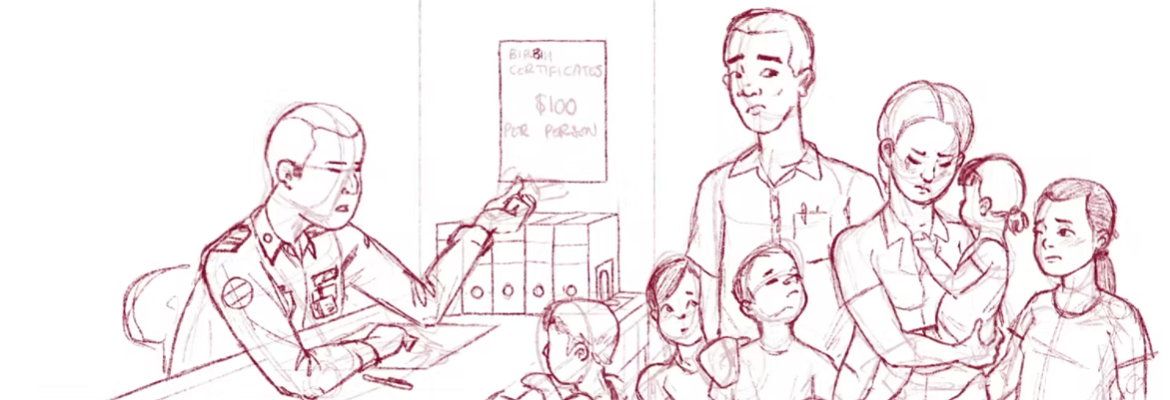
At the end of March a special issue of TRAJECTORIA, "Ethno-graphic Collaborations: Crossing Borders with Multimodal Illustration", was published. In a piece titled "Waters of Death and Life: The Evolution of an 'Ethno-Graphic'" by Dr Charlie Rumsby (a Visiting Research Fellow in the GSD Department) and Ben Thomas (an independent digital illustrator) we see an academic thesis in the process of being turned into an ethno-graphic novel.


